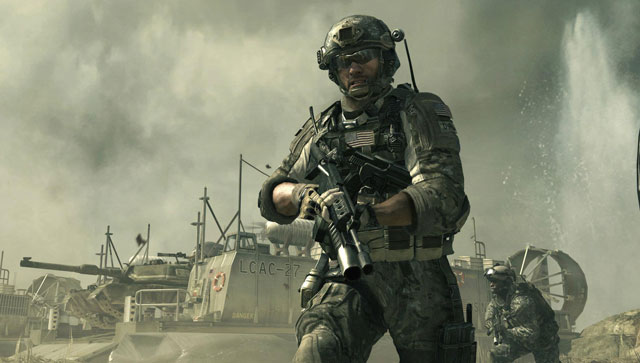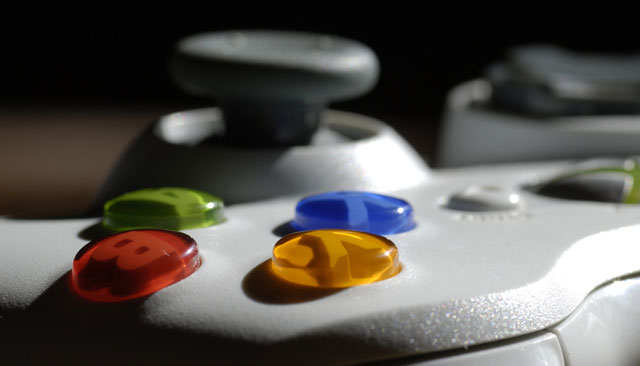
There was a time when a sleepless weekend would flit by while I stayed in my pyjamas, eating Marmite on toast and building pyramids in the city construction computer game Pharoah. Now I have a job, a husband and a toddler, and the days of non-stop gaming are a thing of the past. One thing’s for sure. I’ll never play for the national team. Because you can do that now, you know.
Since the late 1990s, the e-sports governing body Mind Sports South Africa, an affiliate of the South African Sports Confederation and Olympic Committee, has awarded provincial colours for gaming and national colours followed in 2005.
Once considered the preserve of socially awkward teenaged boys, players at the top of their electronic game are increasingly getting official recognition for a specialised skills set that, for the very best, can bring fame and money.
Protea gamer Robert Botha, known as “PandaTank” in gaming circles, is South Africa’s most famous video gaming professional and a grandmaster at StarCraft II — a science-fiction strategy game in which players build armies to destroy opponents.
While many of his post-grad peers take a gap year to travel and wait tables, the 22-year-old IT graduate from Johannesburg has travelled as far afield as Cheonan in Korea to play competitively.
After impressing at a Paris tournament earlier this year, where he almost beat one of the world’s top-ranked StarCraft II players, “Stephano”, Botha moved to Los Angeles for a three-month stint at the Razer Academy for gamers.
“You have to have a strong competitive drive as well as the desire to constantly improve yourself at everything you do,” Botha told me in an e-mail interview. “I have personally put thousands of hours into practising and trying to improve.”
Serious business
Rising to the top doesn’t happen by fluke. Competitive players study maps, read up on strategy, scrutinise videos of their opponents’ games, analyse their own, then run through play after play, doing drills.
Botha hasn’t yet reached the level at which he can make a comfortable living off gaming. “I have probably spent more money trying to compete than I have made back in total,” he lamented.
Even on retainer with the cheekily named Portuguese StarCraft II team, Pwnanza (“pwned” or “pwning” is a deliberate misspelling of the term “owned” or “owning”, which means to dominate another team), he’s only managed to stay afloat this long by dipping into his savings.
But the payoffs of being a tournament player are potentially huge: the winner of the recent Blizzard World Cup in Shanghai, China, took home US$100 000.
Tournaments can draw crowds in their thousands. Hundreds of thousands view live streamed matches online and, in South Korea, where gaming is considered a national sport, StarCraft games are broadcast on two dedicated TV channels, complete with commentary and play-by-play analysis. Makers of high-spec gaming computers are willing to fork out big money to ensure that the top gamers are seen playing on their machines, with their headsets, keyboards and mice.
Said Botha: “With the backing of strong sponsors, well-known players can earn up to R65 000/month and travel to a different country nearly every week.”
But for South Africans like Botha, even spectacular talent is no guarantee of landing such deals. Sponsors are mindful of the huge travel costs involved in flying someone based at the tip of Africa to tournaments, he said. For now, Botha is riding the wave of his recent success and focusing on improving his skills and profile through competitive play.
Players like Botha don’t materialise out of thin air.
Top guns
Although South Africa is a gaming minnow compared to South Korea, local e-sports leagues are becoming more sophisticated. In addition to school and club leagues, hundreds of players are involved in Telkom’s commercial Do Gaming league, which this year offered more than R1m in prizes to the country’s top guns.
“You don’t realise how good these guys are. It’s a genuine skill,” said Byron Rigby, a competitive gamer and an account manager at games distributor Megarom. “It’s not just running around and shooting because you won’t win like that.”
This year, Rigby’s “clan”, Monster Energy Gaming, beat perennial favourites Bravado at the first-person shooter Call of Duty: Modern Warfare 3 in the finals of the Do Gaming league championship. They couldn’t have done it, he said, if the team hadn’t gone into seclusion for a week to practise and work on strategy.
Competitive gaming requires a competitive nature, and often those who excel in e-sports excel in physical sports, too. Springbok and former Sharks eighthman Ryan Kankowski is a devoted player of Defense of the Ancients, a strategy computer game in which teams of players, positioned at opposite ends of a map, set out to fortify their positions and destroy their enemies.
Mind Sports South Africa president Colin Webster sees the same thing among the country’s top school-aged players. “We have one [gamer] who has colours in wrestling. In the Free State there’s a gamer who plays for the provincial cricket team,” he said.

Webster, a swimmer in his youth, sees little difference between a competitive athlete and a competitive gamer.
“What’s the difference? At one end [of the spectrum], you have a highly trained athlete; at the other you have the person sitting at the edge of the pool playing Marco Polo, with a six-pack of beers and some friends,” he said. So it is with gaming.
Webster hopes to grow the country’s school gaming league but concedes that e-games are still a niche sport. After all, a school would need a roomful of computers before it could even think of fielding a team.
School sport
Last month I went to a friendly match between teams from two of Johannesburg’s top private schools: it was a chance to gain the upper hand over their mutual rival from Pretoria Boys High, which tops the league in Gauteng.
There were groans, whoops and frantic key tapping as the young team from Roedean School was beaten at Defense of the Ancients by the more experienced players from St John’s College.
“Strategy games build critical thinking skills, whether [children] are playing a board game like Risk or a video game like World of Warcraft,” said Dorian Love, the teacher who manages the gaming teams for both schools.
Still, schools don’t regard it with the same seriousness as traditional sports.
“Gaming has to compete with traditional sports like netball and hockey for time on the school schedule, and the sports department is very jealous of its time,” said Love. “Not everyone enjoys running around a field chasing a ball.”
For many parents and teachers, gaming is still seen as something kids shouldn’t be doing, and often the same adults who can see the value of chess or chequers struggle to see the value of gaming. “The thinking is that they should be studying,” said Love.
But as more parents realise the fringe benefits that come with high-level gaming — such as university bursaries and the chance for international exposure — this mindset is slowly changing.
Amanda Isaacs, whose 14-year-old daughter Gabriela is a devoted gamer, is not a fan. “We’re old school, and gaming isn’t going to get you a good job,” she said.
She’s not wrong. In the South African context, gaming probably isn’t going to get you a good job. That doesn’t mean it doesn’t have spin-off benefits.
Isaacs knew her daughter spent hours a day gaming but only realised how good she was when she mopped up at the national trials and was chosen to represent South Africa at an international championship in Korea.
Though her parents still don’t quite see the appeal, Gabriela’s gaming is now a point of pride for the family. The fact that she has her heart set on a career in biomechanics has kept things uncomplicated.
Meanwhile, with the international travel and minor celebrity status it has brought, gaming has, for Gabriela, provided an unexpected window of opportunity.
Avid gamer Alexandra Kayle (27), from Killarney, said she wouldn’t be where she is today if it wasn’t for gaming. She was an obsessive gamer at high school. “On a weekend, I could easily spend an entire day playing,” she said.
Her first computer, a gift from dad when she was nine, led her to a love affair with technology. This, in turn, led to a career in technology journalism and eventually to her current job in the global communications department at the global software corporation SAP.
Kayle insists that gaming is addictive, but in the same breath points out that it’s just one of the things she does in her spare time, along with scuba diving and volunteering at Lifeline as well as at a local wildlife rehabilitation centre.
And yet the stereotype of the rumpled, Shaun of the Dead-type slacker who lives in his mother’s basement, amped up on energy drinks and permanently attached to a controller and headset, persists. — (c) 2013 Mail & Guardian
- Vist the Mail & Guardian Online, the smart news source
- Controller image: Kss_cville/Flickr

